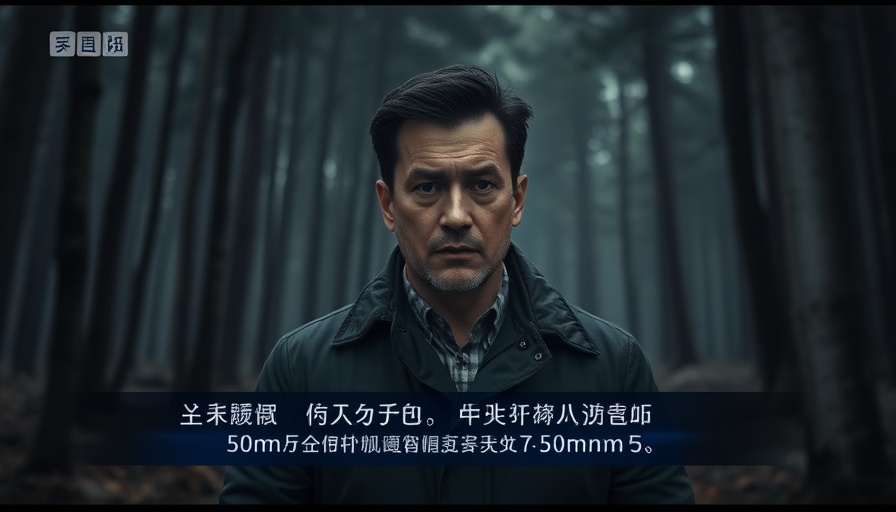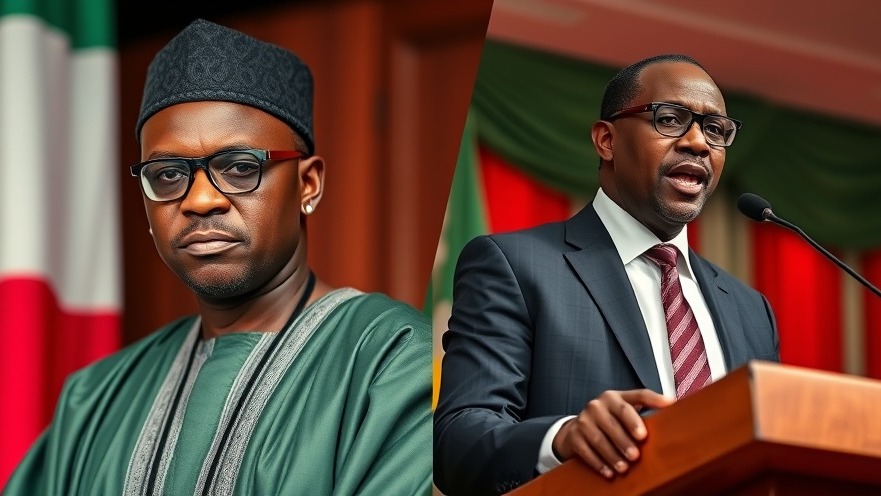
Amidst Turmoil: The Murders of Farmers and Fishermen in Borno
On May 17, 2025, a horrifying incident in Borno state, Nigeria, underscored the persistent threat posed by terrorism in the region. Suspected militants of the Islamic State West Africa Province (ISWAP) executed 23 farmers and fishermen in a remote village, intensifying concerns regarding the safety of civilians in insurgency-affected areas. The victims, primarily beans farmers, had reportedly made arrangements with a rival Boko Haram faction to operate in territories under insurgent control, hoping to cultivate in a perilous environment.
In 'ISWAP Kill 23 Farmers in Borno - 12 PM News 17th May 2025,' the discussion dives into the brutal realities facing agricultural communities in Nigeria, exploring key insights that sparked this deeper analysis.
Understanding the Context: Terrorism in Nigeria
The tragedy in Malam Karanti village highlights the alarming situation in Nigeria's northeastern region, where insurgents continue to plague agricultural communities. Such incidents not only claim lives but also significantly undermine food security and livelihoods, as farmers become increasingly reluctant to engage in agricultural activities due to fear of violence. The farmers’ decision to collaborate with one faction of Boko Haram, despite the inherent dangers, illustrates the desperate measures civilians are forced to adopt.
The Political Landscape: Framing the Narrative on Security
Beyond the immediate implications of these murders, they resonate within a broader dialogue regarding Nigeria’s governance system and security strategies. Being a complex tapestry of ethnic, cultural, and socio-economic factors, Nigeria's challenges often find their roots in deeper systemic issues. Recent statements from political figures, including the call for reassessing the country’s presidential system, reveal growing discontent among citizens regarding how governance reflects local realities.
Local Influences on Global Security Dynamics
As ISWAP's influence expands, the intertwining effects of terrorism on regional security frameworks can no longer be ignored. Neighboring countries increasingly rally to offer support in combating these challenges, as evidenced by the recent pledge from Senegal’s Prime Minister Osman Sonko to bolster Burkina Faso in its fight against similar terrorist threats. Through collaborative measures, West African nations hope to forge a united front against insurgent groups threatening stability in the region.
Voices from the Ground: Civilian Perspectives and the Pain of Loss
The outcry from families affected by this latest violence underscores the urgent need for effective security interventions. While government assurances of improved safety measures are presented, the reality on the ground tells a different story. Survivors express a mix of fear and anger, reflecting a growing frustration towards the inability of authorities to protect their communities. To many, these attacks are not merely numbers on a casualty list; they are personal tragedies, with each victim representing a family shattered by violence.
Future Implications: Security Reforms and Societal Responses
The dire situation poses critical questions about the future of Nigeria’s security policies and governance structures. As insurgents continue to target vulnerable populations, systemic reforms grounded in local realities would be essential to restore trust between citizens and the state. Understanding that security extends beyond military responses to encompass socio-economic development is crucial. Addressing the root causes of terrorism, including poverty and lack of access to education, could pave the way for lasting peace.
The Broader Picture: Nigeria and its Role in African Security
Nigeria’s struggle against terrorism not only affects its own citizens but also poses significant implications for the African continent. As one of Africa’s key players, Nigeria’s stability is paramount for regional success. Collective efforts in intelligence sharing, resource allocation, and fortifying defenses can reshape the continent's approach to tackling terrorism, fostering a collaborative model that prioritizes human security.
As we rise to address terrorism's grip in Nigeria, it becomes clear that understanding the nuances surrounding these events is responsible for promoting change. The narratives stemming from incidents like that in Borno reveal that the future of security in Nigeria—and ultimately Africa—depends heavily on combined efforts, education, and community resilience.
 Add Row
Add Row  Add
Add 


 Add Row
Add Row  Add
Add 

Write A Comment